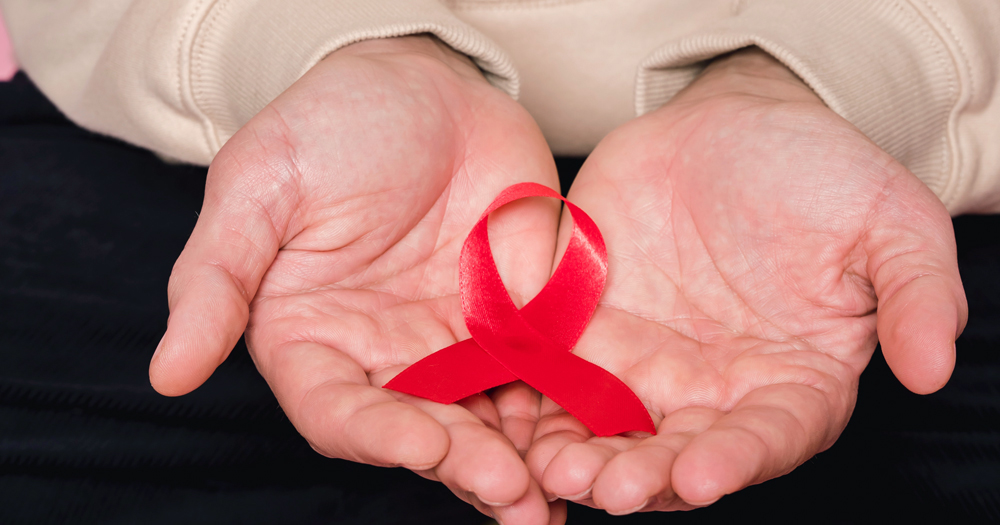Tuesday, March 1, marks Zero Discrimination Day 2022 across the globe and human rights groups are using their voices to call for an end to stigma and inequality.
To mark the occasion, President Higgins welcomed the Head of UNAIDS, Winnie Byanyima, to Áras an Uachtaráin. UNAIDS is the driving force behind Zero Discrimination Day and this year they’re promoting the message, ‘Remove laws that harm, create laws that empower’.
This morning President Higgins received Head of @UNAIDS @Winnie_Byanyima on a courtesy call at Áras an Uachtaráin pic.twitter.com/ws1aTn6h0a
— President of Ireland (@PresidentIRL) March 1, 2022
For Zero Discrimination Day 2022, UNAIDS are specifically calling for an end to inequalities faced by women.
“We are challenging the discrimination faced by women and girls in all their diversity where ever they are and raising awareness and come up with actions on promoting equality and empowerment for women and girls.”
UNAIDS acknowledge that, although progress has been made in many parts of the world, discrimination is still thriving globally.
On #ZeroDiscrimination Day, let's combat stigma to ensure the ? becomes fairer & more equitable.
Together we can share responsibilities for the future to:
✅ tackle the #ClimateCrisis
✅ achieve #VaccinEquity to end the pandemic
✅ reach #HealthForAll
✅ accomplish much more pic.twitter.com/D9DfHEriUv— World Health Organization (WHO) (@WHO) March 1, 2022
“Intersecting with other forms of discrimination—based, for example, on income, race, ethnicity, disability, sexual orientation or gender identity—these rights violations disproportionately harm women and girls,” they said.
“Ultimately, gender inequality affects everyone’s health and well-being. In many countries, laws that discriminate against women and girls remain in force, while laws that uphold women’s basic rights and protect them against harm and unequal treatment are far from the norm.”
HIV Ireland are also marking the day by calling for an end to stigma, which they acknowledge is a huge obstacle in the battle against HIV.
“[Zero Discrimination Day] is an opportunity to celebrate everyone’s right to live a full and productive life with dignity – no matter what they look like, where they come from or whom they love,” they said in a statement on their website.
Laws that impose travel restrictions against people living with #HIV are discriminatory and a violation of #HumanRights.
On #ZeroDiscrimination Day, pledge to #endInequalities.
Take action against laws that harm.https://t.co/RDhEIPNH7p pic.twitter.com/1qWxLHvuSl
— HIV Ireland (@HIVIreland) March 1, 2022
“The world is off track from delivering on the shared commitment to end AIDS by 2030 not because of a lack of knowledge, capability or means to beat AIDS, but because of structural inequalities that obstruct proven solutions in HIV prevention and treatment,” their website details.
Today is #ZeroDiscriminationDay, a day "to stand together to end discrimination,to celebrate everyone's right to live a full and productive life with dignity, no matter what you look like, where you come from or who you love." – @HIVIreland https://t.co/FNZk9MUPwr
— Stephen O'Hare (@SOHare75) March 1, 2022
To celebrate the occasion last year, the non-profit organisation published a report that seeks to educate media outlets and journalists on how to report on HIV responsibly. The report includes “up-to-date information on use of language, terminology, and key facts about HIV.”
“Everyone living with HIV knows that the history of media reporting on HIV and AIDS is littered with examples of factual inaccuracy, misinformation and homophobia,” said HIV Ireland, Executive Director, Stephen O’Hare.
On #ZeroDiscrimination Day, @UNAIDS calls for the removal of laws that harm, including laws that criminalise sex work. These laws impact negatively on the #HIV response and drive people further from accessing health and other services.
Create laws that empower.@SWAIIreland https://t.co/tdUnApI2Oo
— HIV Ireland (@HIVIreland) March 1, 2022
“To facilitate improved reporting, we will be sending a copy of the guidelines to editors, journalists, media organisations and press oversight agencies throughout Ireland.”
‘By being open, shameless, brazen even about #HIV, we can tackle much of the ignorance and fear that leads to stigma. People with HIV aren’t frightening or different when you hang out with us.’#ZeroDiscriminationDay https://t.co/AhNWudulty pic.twitter.com/Ea5lyg2B8S
— Matthew Hodson (@Matthew_Hodson) March 1, 2022
© 2022 GCN (Gay Community News). All rights reserved.
Support GCN
GCN is a free, vital resource for Ireland’s LGBTQ+ community since 1988.
GCN is a trading name of National LGBT Federation CLG, a registered charity - Charity Number: 20034580.
GCN relies on the generous support of the community and allies to sustain the crucial work that we do. Producing GCN is costly, and, in an industry which has been hugely impacted by rising costs, we need your support to help sustain and grow this vital resource.
Supporting GCN for as little as €1.99 per month will help us continue our work as Ireland’s free, independent LGBTQ+ media.
